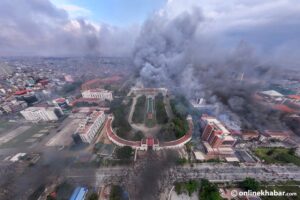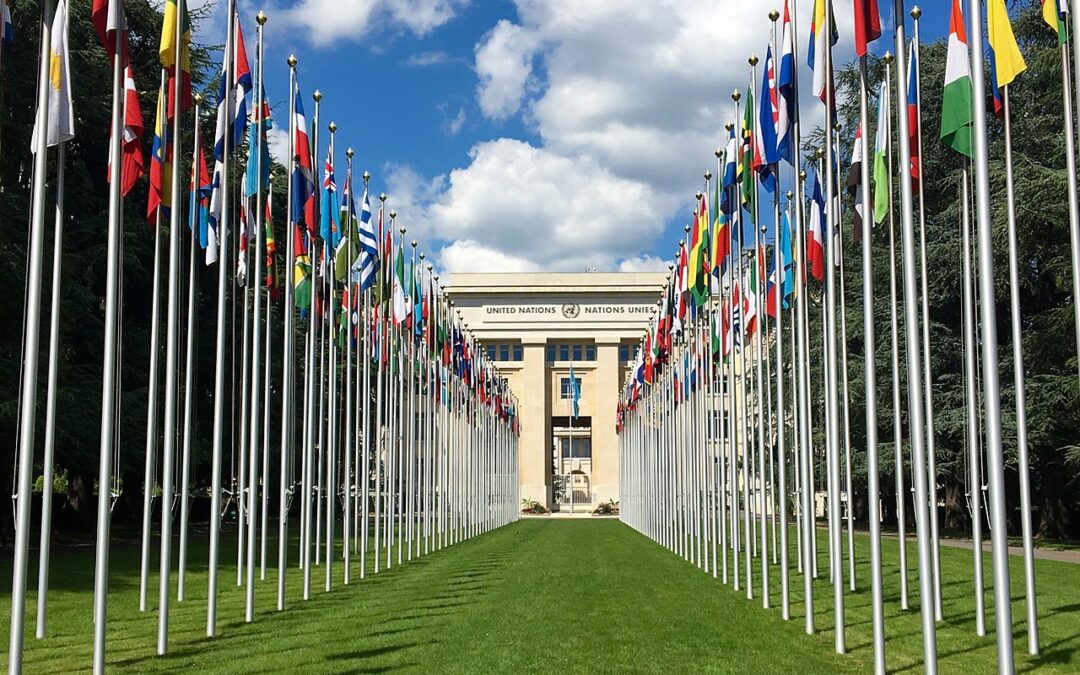
Jul 10, 2020 | Advocacy, News, Non-legal submissions
Today, the ICJ submitted a report to the UN Human Rights Council Working Group on the Universal Periodic Review (UPR) ahead of the review of Myanmar’s human rights record in January-February 2021.
The ICJ stressed the lack of accountability and redress for victims – and the resulting continued culture of impunity – for widespread gross human rights violations constituting crimes under international law in Myanmar, particularly those involving members of Myanmar’s Defence Services.
Certain provisions under the 2008 Myanmar Constitution as well as national laws such as the 1959 Defence Services Act and 1995 Myanmar Police Force Maintenance of Discipline Law shield security forces from public criminal prosecutions in civilian courts. Closed court martial proceedings also deny victims and their families the right to truth about human rights violations.
The Myanmar National Human Rights Commission (MNHRC), Myanmar’s national human rights institution with the mandate to investigate allegations of human rights violations, has not initiated any substantive or credible investigation into allegations of widespread and systematic human rights violations perpetrated in recent years by soldiers against persons from ethnic minorities, despite being recorded in detail in the reports of the UN Independent International Fact-Finding Mission on Myanmar and the UN Special Rapporteur on the situation of human rights in Myanmar.
Rather than strengthen the role of civilian courts and the MNHRC, Myanmar has set up ad hoc commissions of inquiry to investigate such incidents. However, these inquiries have a recommendatory mandate and an unclear relationship with the judiciary. The full report of the findings of these commissions are generally not publicly disclosed. Against this backdrop, Myanmar has ceased cooperation with the UN Special Rapporteur for Myanmar and rejected other UN and international accountability mandates.
In light of this, the ICJ recommended the following actions, among others:
- For the MNHRC to investigate all allegations of gross human rights violations, especially including crimes under international law;
- For the Parliament to repeal or amend the 1959 Defence Services Act to bring it in line with international human rights law and standards and ensure that gross human rights violations and serious international humanitarian law violations perpetrated by soldiers can only be prosecuted in civilian courts;
- For the Union Government to publish the full report of the findings of ad hoc commissions of inquiry, such as that of the Independent Commission of Enquiry;
- For the Union Government to issue an open invitation to and cooperate with the Special Rapporteur on the situation of human rights in Myanmar, the Office of the High Commissioner for Human Rights as well as the UN Independent Investigative Mechanism on Myanmar; and
- For the Union Government to cooperate with the International Criminal Court.
The ICJ also called for Myanmar to become a party to key human rights treaties, such as the International Covenant on Civil and Political Rights, that the State committed – yet failed – to accede to in its previous UPR cycle.
Download
Myanmar-UPR-Submission-2020-ENG (PDF)
Contact
Jenny Domino, ICJ Associate Legal Adviser, e: jenny.domino@icj.org
Kingsley Abbott, Coordinator of the ICJ’s Global Accountability Initiative, e: kingsley.abbott(a)icj.org

Jul 3, 2020 | Advocacy, News
The ICJ published a legal memorandum concluding that the Ministry of Transport and Communications (MOTC) Order to block access to specific websites is not compliant with international human rights law.
The legal memorandum also sets out various remedial options under Myanmar law to question the lawfulness of the Order.
The ICJ focused its human rights analysis on the rights to freedom of expression and access to information and the right to health, which includes access to health information. These rights are well established under general and customary international law. The right to health is guaranteed under the International Covenant on Economic, Social and Cultural Rights (ICESCR) and the Convention on the Rights of the Child, to which Myanmar is a party.
The MOTC, presumably invoking Section 77 of the Telecommunications Law, ordered telecommunication service providers in March 2020 to take down 2,147 websites found by it to have disseminated “fake news,” adult content, and child sexual abuse content. It is not clear if any of the information under sanction relates to COVID-19, although the pandemic was mentioned elsewhere in one mobile service provider’s press release. Immediately after the release of the MOTC Order, it was discovered that the ban included ethnic news media websites, such as Rakhine-based Development Media Group and Narinjara News, thereby prompting speculation as to the true reasons behind the ban.
The ICJ emphasized the following in the legal memorandum:
- Blocking access to specific websites engages a wide range of human rights concerns, including but not limited to the person’s right to freedom of expression and right of access to information protected under Article 19 of the International Covenant on Civil and Political Rights and customary international law. While lack of transparency about the State rationale and evidence was an obstacle to a full analysis, the permissible conditions that would justify sweeping limitations on this right do not appear to have been met.
- In the context of the COVID-19 pandemic, the MOTC Order also undermines the right to health of all persons in Myanmar. The right to health guaranteed under the ICESCR is reserved to all persons without discrimination and includes access to health information. The MOTC Order effectively hinders access to health information by blocking legitimate sources of information.
- To challenge the MOTC Order, the following domestic legal remedies are available: (i) filing a complaint with the Myanmar National Human Rights Commission; (ii) filing an application for a constitutional writ before the Union Supreme Court and/or (iii) filing a declaration suit under the Specific Relief Act.
Download
Myanmar-Memo-on-MOTC-Order-Legal-Memorandum-2020-ENG (PDF)
Contact
Jenny Domino, ICJ Associate Legal Adviser, e: jenny.domino(a)icj.org
Hnin Win Aung, ICJ Legal Adviser, e: hninwin.aung(a)icj.org
Related work
Publication: Myanmar’s ongoing Internet shutdown and hostilities threaten right to health during COVID-19
Statement: Government must lift online restrictions in conflict-affected areas to ensure access to information during COVID-19 pandemic
Report: Curtailing the Right to Freedom of Expression and Information in Myanmar
Publication: Four Immediate Reforms to Strengthen the Myanmar National Human Rights Commission
Publication: Strategic Litigation Handbook for Myanmar
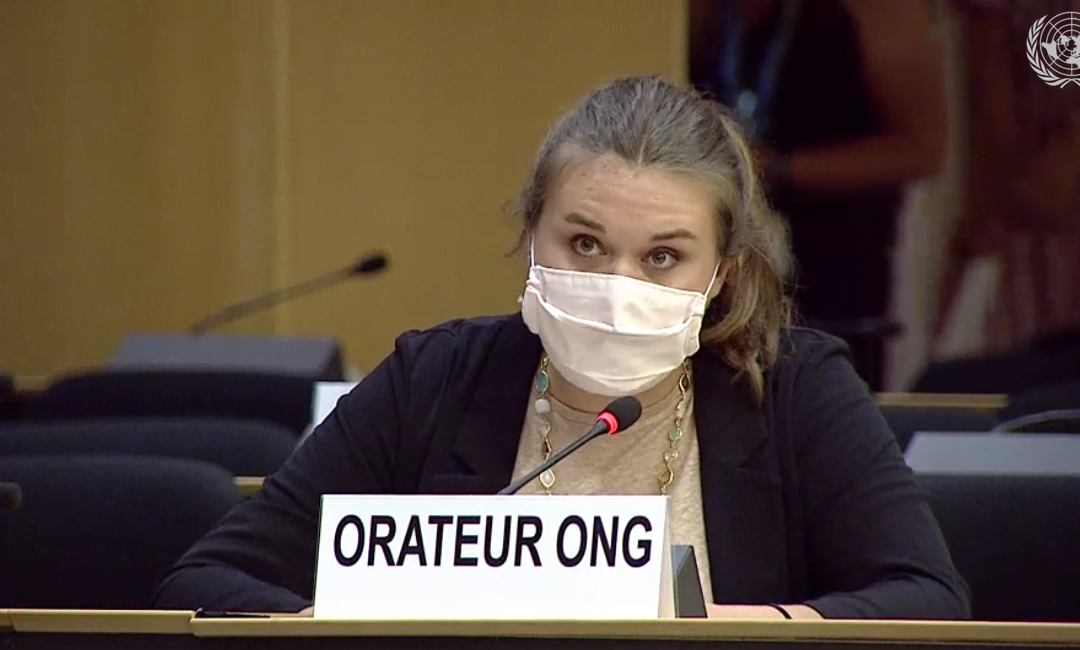
Jun 30, 2020 | Advocacy, Non-legal submissions
Speaking at the UN Human Rights Council today, the ICJ urged action on longstanding and pervasive impunity for human rights violations in the Philippines and highlighted new threats posed by a pending new counter-terrorism law.
The oral statement, delivered in an interactive debate on the human rights situation in the Philippines based on a report prepared by the High Commissioner for Human Rights, read as follows:
“Madame President,
The International Commission of Jurists (ICJ) concurs with the High Commissioner’s finding that overemphasis by the Government of the Philippines on national security and public order has led to serious human rights violations (A/HRC/44/22, para 12). Such violations will only increase if the draft Anti-Terrorism Act is approved and implemented.
The draft law would, for example, allows detention without judicial warrant for up to twenty-four days. Such prolonged pretrial detention without judicial review This is inconsistent with the prohibition of arbitrary detention under the International Covenant on Civil and Political Rights (ICCPR), and the right under the ICCPR of anyone arrested or detained on criminal grounds to be brought promptly before a judge. The Human Rights Committee has stressed that such judicial control of initial detention periods is not only essential to guarantee the right to liberty but also to prevent torture, other ill-treatment, and enforced disappearance.
In line with both the High Commissioner’s report and the 25 June 2020 statement by a large number of Special Procedures, the ICJ urges the Government of the Philippines to accept the findings and recommendations and rapidly implement corrective measures, in cooperation with the OHCHR, civil society, and the Commission on Human Rights, and to abandon or fundamentally revise the draft Anti-Terror Law. In the absence of clear, effective and measurable progress on accountability at the national level, this Council must stand ready to establish an independent international investigation (para 88(iii)).
Thank you.”
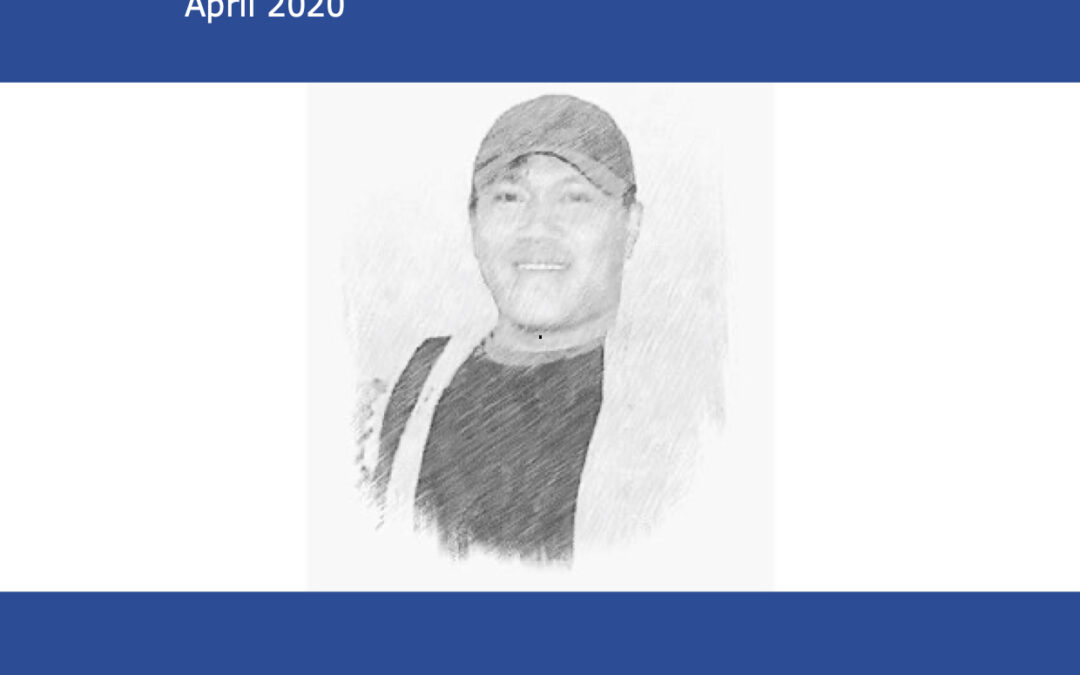
May 6, 2020 | Advocacy, News, Publications
In a report published today, the ICJ called on the police and prosecutorial authorities in Myanmar to re-open the investigation into the death of journalist Ko Par Gyi in military custody in September 2014.
The report documented the many barriers that have prevented justice from being served in this case, as well as other cases of gross human rights violations in Myanmar.
The ICJ called on the Union Parliament to repeal or amend the 1959 Defence Services Act and other legislation that effectively provides immunity to military personnel accused of serious crimes. These and other barriers have been described at length in the ICJ’s 2018 report on Achieving Justice for Gross Human Rights Violations.
“More than three years ago, the police abruptly ended their formal inquiry into the killing of Ko Par Gyi, without providing any justifiable legal rationale for its closure,” said Frederick Rawski, ICJ Asia Pacific Director. “In the intervening years, we have seen what happens when this culture of military impunity goes unaddressed.”
In the report, An unlawful killing: How Ko Par Gyi’s death highlights barriers to justice in Myanmar, the ICJ evaluated the various investigations into the death and identified three key obstacles to justice in the case:
- the existence and operation of national laws like the 1959 Defence Services Act that shield security forces from public criminal prosecutions, serving to deny victims and their families the right to truth about violations;
- sub-standard investigative practices that are vulnerable to political pressure and lacked independence, and simultaneous, separate and uncoordinated investigations that resulted in an unsystematic and ineffective approach to investigating the case; and
- a lack of transparency that denied the family their right to access information concerning the violations and accountability processes.
Ko Par Gyi was detained by police in Mon State and transferred to military detention on 30 September 2014. He died four days later in military custody. A deeply flawed inquiry carried out in military courts, pursuant to the 1959 Defence Services Act, resulted in the acquittal of the soldiers allegedly involved. Those same provisions are commonly used to transfer cases involving military personnel from civilian to military court. Under international standards, military courts should not be used to try military personnel or others for gross human rights violations and crimes under international law.
“It is no surprise that an international investigative mechanism has been established to look into alleged serious human rights violations in Rakhine and elsewhere in Myanmar,” said Rawski. “Myanmar’s legal framework does not provide adequate safeguards to ensure independent investigation into and prosecution of serious human rights violations. What happened to Ko Par Gyi’s case illustrates that all too clearly.”
The UN Human Rights Council has established an Independent Investigative Mechanism for Myanmar (IIMM) to collect evidence and prepare files for criminal prosecution of the most serious international crimes and violations of international law committed in Myanmar since 2011.
Key recommendations in the report include:
- To the Executive and the Union Parliament: amend the 1959 Defense Services Act to align it with democratic principles, the constitutional guarantee of equal legal protection, and the State’s international law obligation to protect the right to life, including by prosecuting serious violations.
- To the Tatmadaw: apply standards and procedures in military courts that conform to international law, ensure all crimes perpetrated against civilians are tried in the civilian judicial system, and reform rules of engagement to explicitly instruct soldiers to protect life, consistent with international law.
- To the Myanmar Police Force and the Union Attorney General’s Office: align investigative procedures and practices with international law and standards.
- To the Myanmar National Human Rights Commission: take an active and broad interpretation of the MNHRC mandate to address serious human rights violations including those which have gone before courts.
- To UN Member States and international organizations: ensure any organizational support to security forces is contingent on and enables demonstrable commitments to prevent and punish violations by its members.
This report was produced as part of the ICJ’s Global Accountability Initiative, which aims at combatting impunity and promoting redress for gross human rights violations around the world through the entrenchment of the rule of law
Download
An unlawful killing: How Ko Par Gyi’s death highlights barriers to justice in Myanmar in English and Burmese.
Press statement with additional background information on Ko Par Gyi in English and Burmese.
Contact:
Frederick Rawski, ICJ Asia Pacific Regional Director, (Bangkok), t:+66 64 4781121, e: frederick.rawski@icj.org
Kingsley Abbott, Coordinator of the ICJ’s Global Accountability Initiative, t: +66 94 470 1345; e: kingsley.abbott(a)icj.org
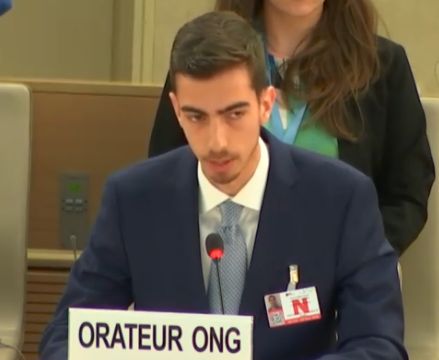
Mar 10, 2020 | Advocacy, Non-legal submissions
The ICJ today spoke in the final interactive dialogue with the current UN Special Rapporteur on human rights in Myanmar, at the Human Rights Council in Geneva.
The statement read as follows:
“The ICJ salutes what the current Special Rapporteur has achieved in the mandate despite withdrawal of cooperation by the Government, and shares the concerns expressed in this final report (A/HRC/43/59), particularly the urgent need to establish peace and security in Rakhine State without compromising human rights law and international criminal accountability for gross human rights violations.
The ICJ recalls the obligations of Myanmar under international human rights law. The Government must ensure that human rights are not violated in the context of conflict with the Arakan Army. The longstanding internet shutdown in Rakhine and Chin States must be ended. Due process rights of persons arrested must be respected.
The ICJ also welcomes the Order of provisional measures in the case brought by The Gambia at the International Court of Justice. Myanmar must comply and prevent further acts of genocide.
The Myanmar Government must also ensure accountability for mass atrocities. In a briefing paper last year, the ICJ proposed Constitutional, legislative and institutional reform of Myanmar’s National Human Rights Commission to enable it to independently and effectively investigate allegations of human rights violations. The Myanmar Government should also cooperate with the Independent Investigative Mechanism for Myanmar and the International Criminal Court.
The ICJ would like to ask: based on your experience in the mandate, how can States best strengthen support for the mandate and the various international accountability initiatives underway?”

Mar 9, 2020 | Advocacy, Non-legal submissions
The ICJ today urged the UN to more effectively protect and promote human rights in Myanmar, and the Human Rights Council to monitor implementation of the Rosenthal Inquiry recommendations to this end.
The statement, delivered in a discussion of the Secretary-General’s oral update on the involvement of the United Nations in Myanmar, read as follows:
“The ICJ welcomes the report of Mr. Gert Rosenthal entitled, ‘A Brief and Independent Inquiry into the Involvement of the United Nations in Myanmar from 2010 to 2018.’
The ICJ concurs with the conclusions, including that the UN suffered from ‘systemic and structural failures’ that effectively prevented it from stopping or mitigating the atrocities in Rakhine State in 2016 and 2017.
We welcome the initiative to brief the Council on the report, which the ICJ and other non-governmental organizations recommended to the Secretary-General in a letter last year.
The ICJ further urges that concrete steps be taken to:
1) improve coordination at all levels of the UN, including the adoption of a common strategy and agenda among agencies at the country level to promote accountability for human rights violations, which would also advance the Call to Action by the Secretary General;
2) hold UN officials responsible for failures to mitigate or prevent acts of violence constituting crimes under international law; and
3) publish annual progress reports until the recommendations are fully implemented.
The need for a concerted and system-wide commitment to promote and protect human rights in Myanmar is as urgent as ever given the intensification of armed conflict in Rakhine State and the potential for conflict as national elections approach.
We urge the Council to monitor implementation of the reforms identified in the Rosenthal report.”







